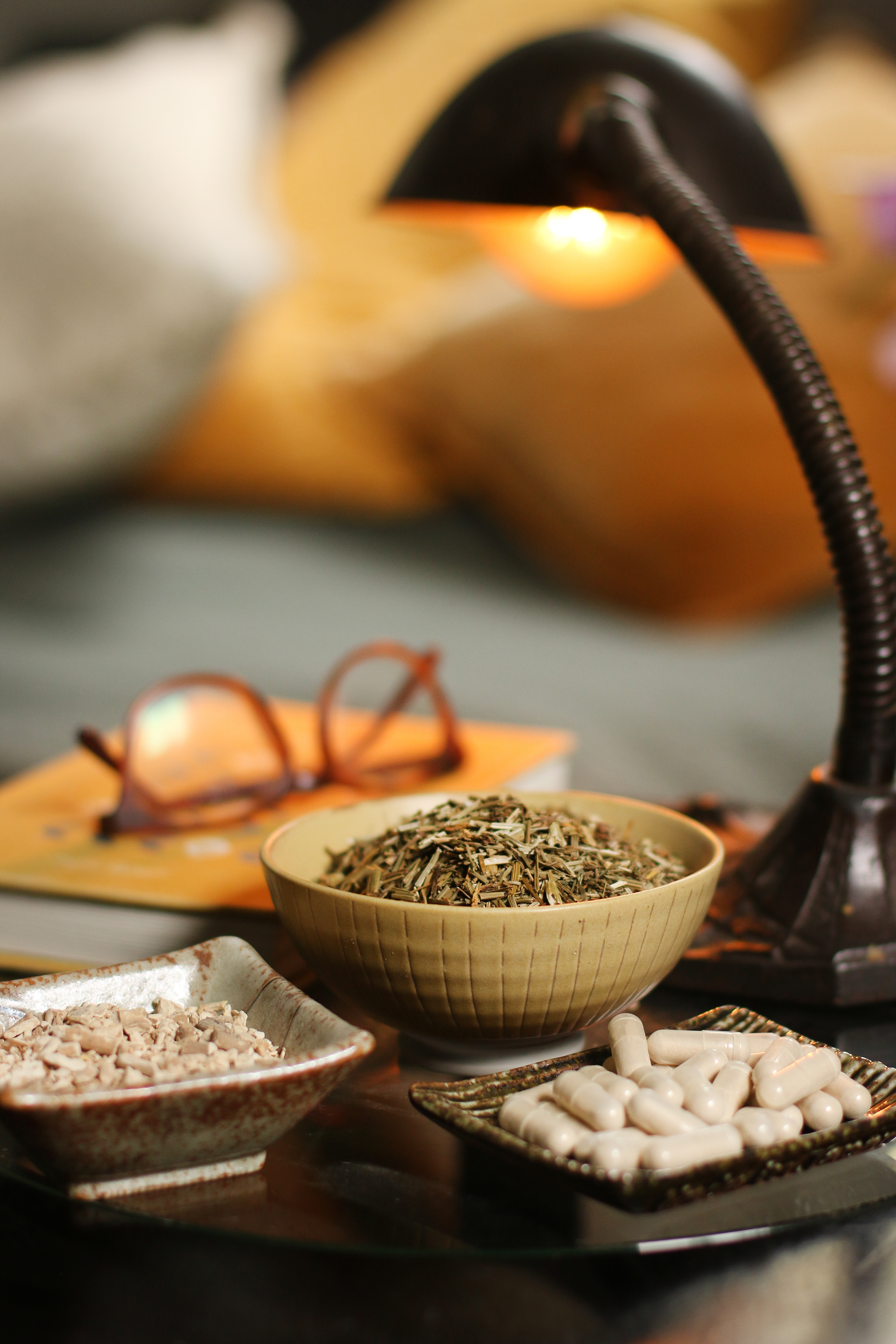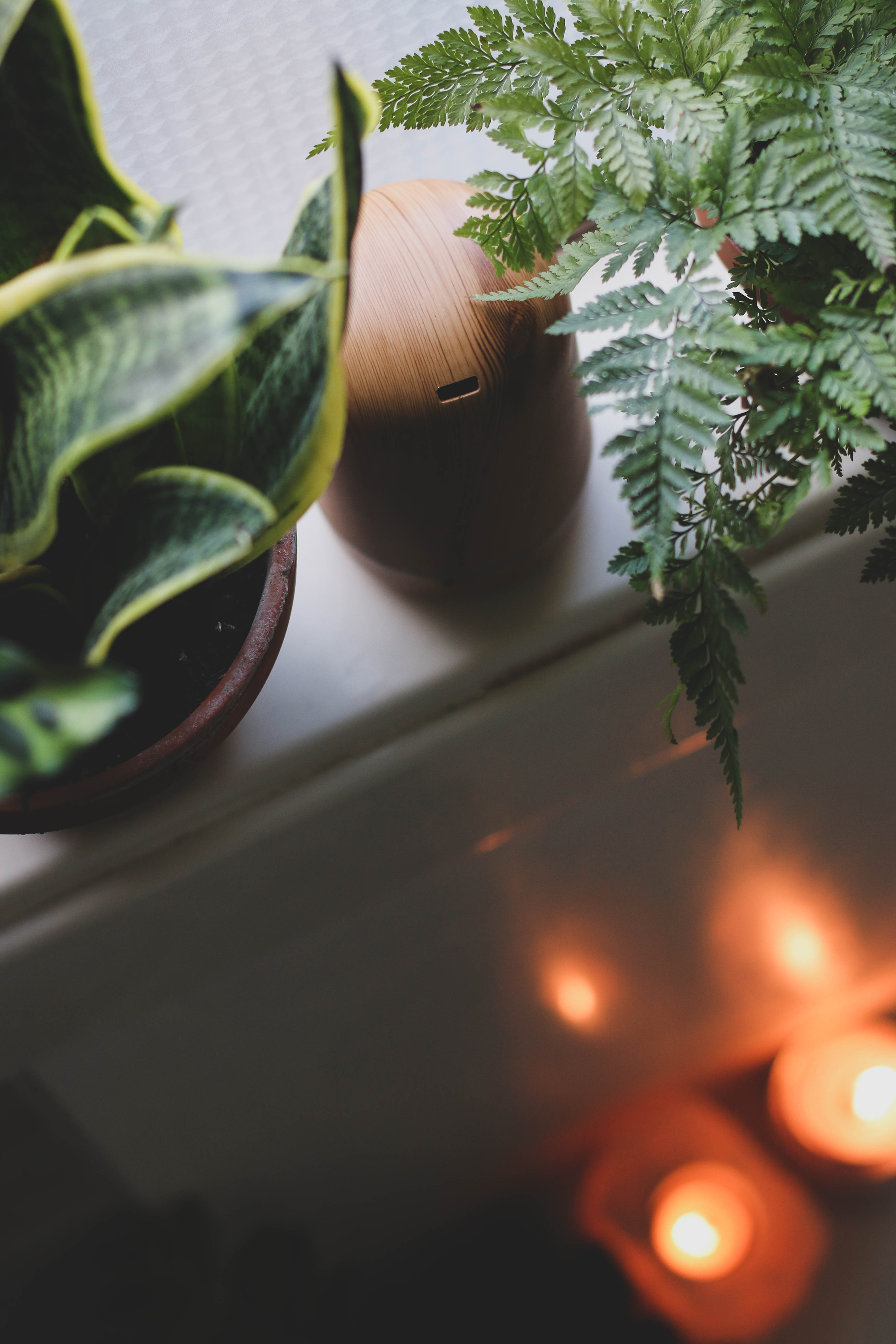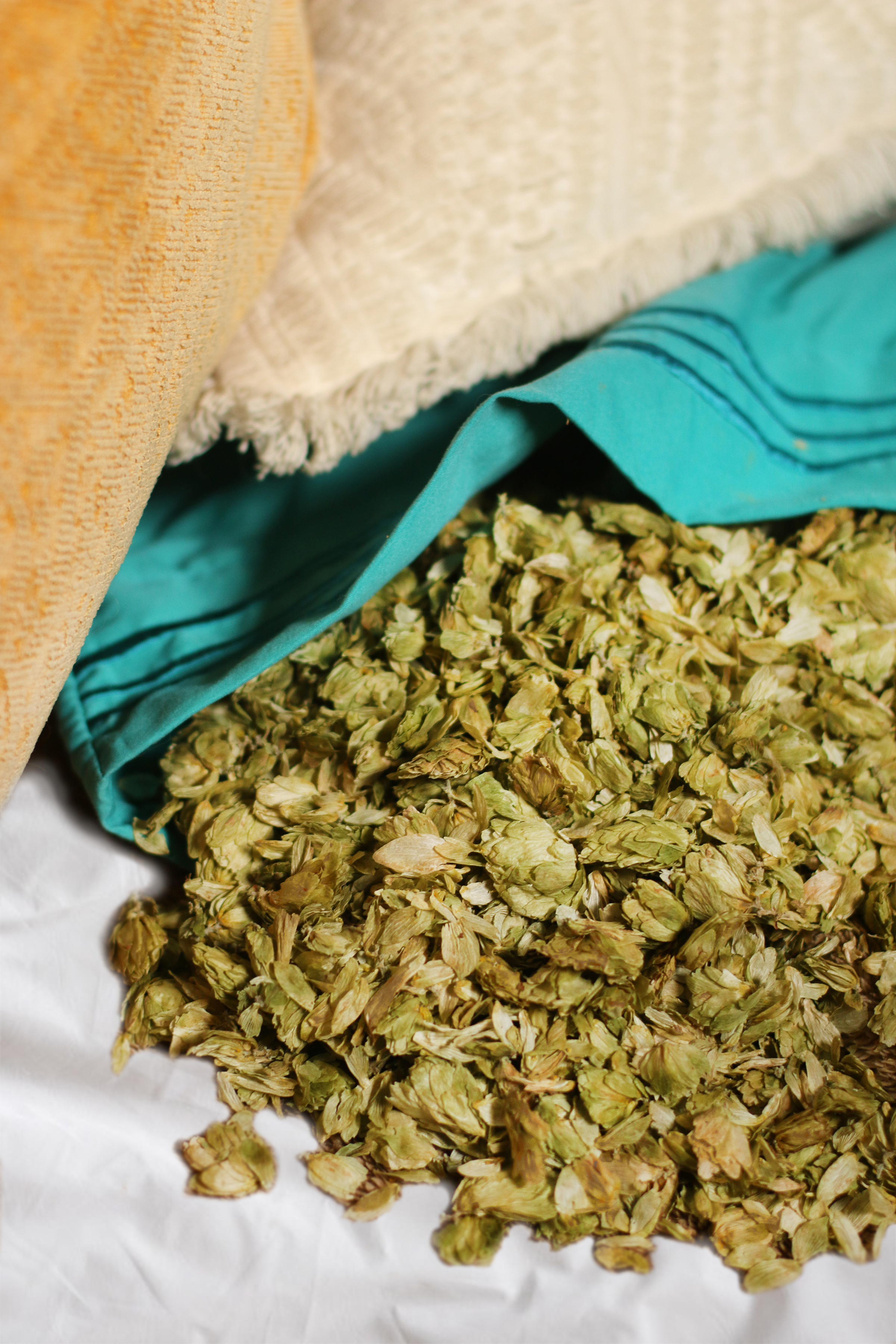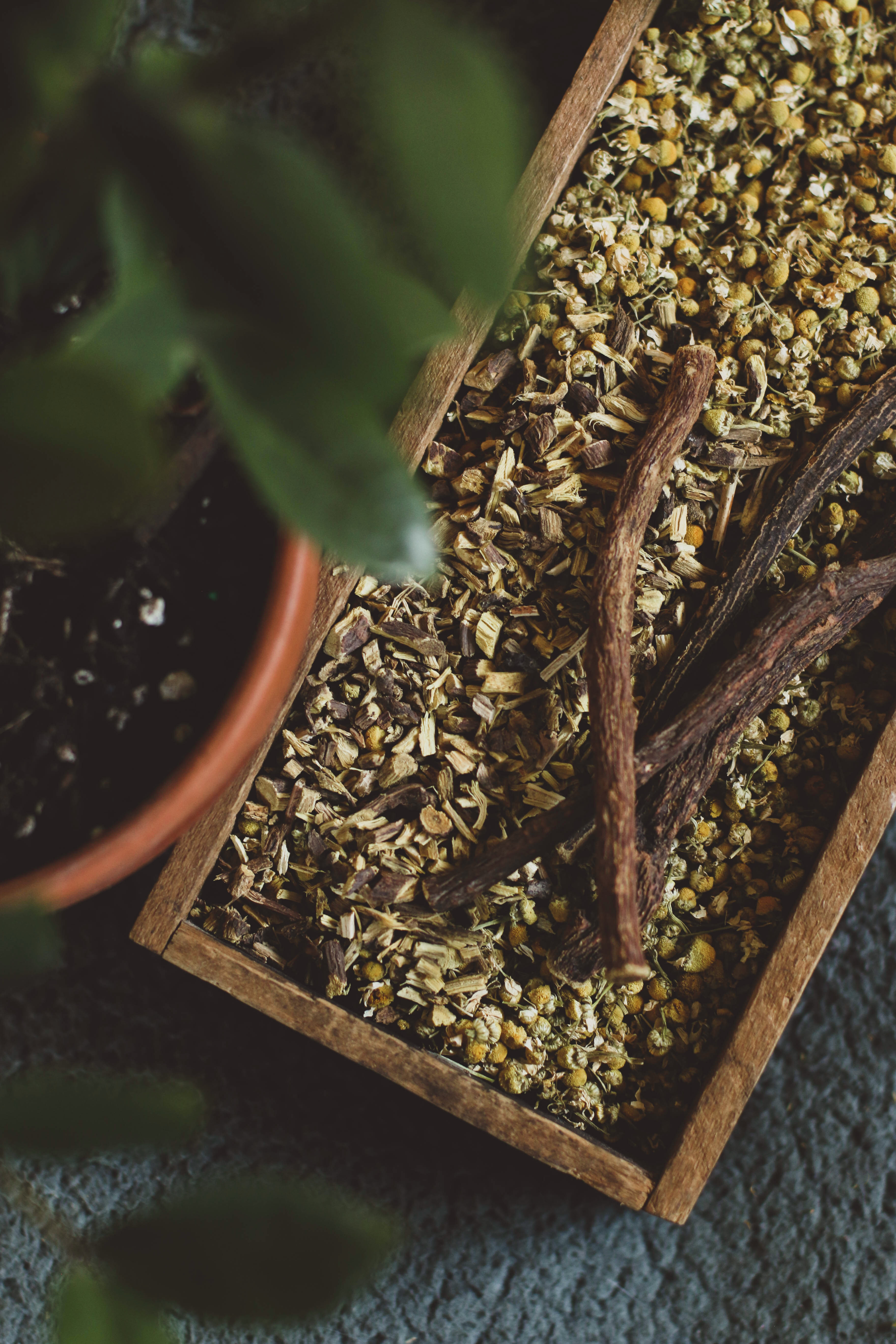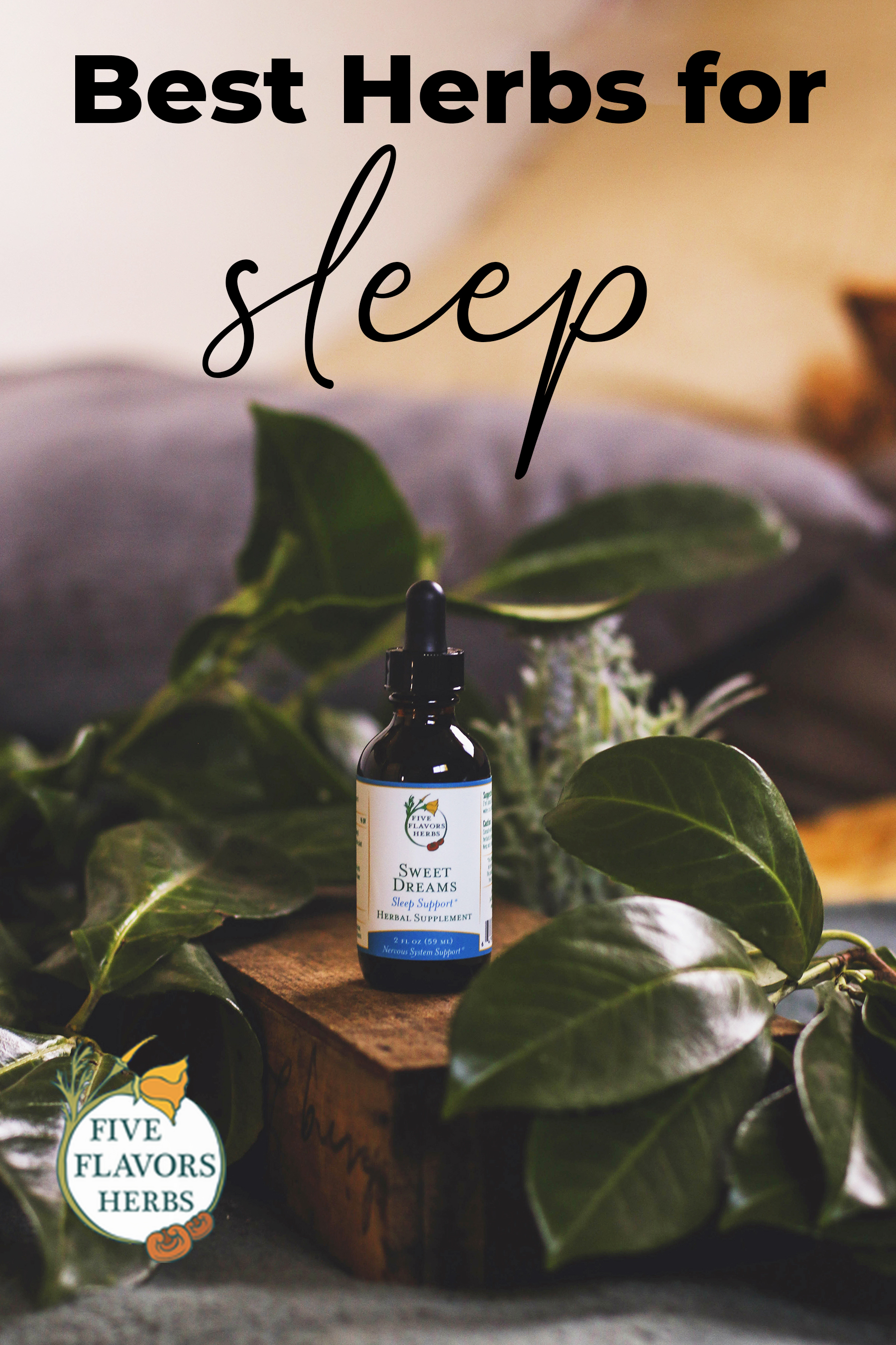Wellness beliefs may vary widely throughout different eras and cultures, but virtually all healing traditions agree on one principle: the importance of sleep. As a human, parent, doctor, and insomniac, I think about sleep—a lot! Consistent, sufficient, and good-quality rest is essential to all aspects of human health, and while no amount of herbal support can compensate for a lack of sleep, natural remedies can be used strategically (in combination with healthy bedtime behaviors) to help us find the rest we so urgently need.
Why Is Sleep Important?
Humans have evolved to sleep for up to one-third of our lives, and we have good reason to invest so much time in this seemingly inactive pursuit. Sleep allows our bodies and minds to rest, repair, and rejuvenate in ways that simply aren’t possible while awake. Inadequate sleep affects our energy, mood, focus, and also our physical health. According to the CDC, inadequate sleep has been shown to contribute to chronic conditions such as hypertension, Type 2 diabetes, and obesity. Furthermore, insomnia is a leading co-factor in chronic pain, anxiety, and depression. When we don’t sleep well, we can’t be our best selves.
Why Can’t I Sleep?
Some folks have no trouble getting a great night’s rest, but for the rest of us, many factors can contribute to wakefulness. Some of us have a difficult time winding down to sleep in the first place. Others fall asleep just fine, only to awake hours later to wait for sunrise in frustrated alertness. Fragmented sleep due to alcohol, medications, or breathing conditions like nasal congestion or obstructive sleep apnea can affect the quality of rest, no matter how many hours you spend in bed with your eyes closed. Either way, the result is a poor night’s sleep and fatigue throughout the following day.
COMMON FACTORS THAT DISRUPT SLEEP
- Stress and worry
- Screen time
- Caffeine intake (especially after noon)
- Alcohol
- Low blood sugar
- Interruptions (baby/kids, nighttime urination, text messages)
- Stimulant medications (for weight loss, ADHD, depression, and others)
- Shift work, or alternating schedules
- Afternoon naps
- Lack of exercise, or exercise too late at night
- Pain
- Noise
- Sleep disorders (sleep apnea, restless leg syndrome)
- Depression, anxiety, or emotional trauma
Lifestyle Habits for Good Sleep
Before recommending any particular herbs or supplements for sleep, I always review an individual’s health history and lifestyle factors to identify practical, day-to-day ways to improve their chances of getting a good night’s sleep.
PRACTICE GOOD SLEEP HYGIENE
- Keep a regular schedule. Try to set a bedtime and wake time to teach your body how to follow a rhythm. If you can, try to get to sleep between 9 p.m. and midnight and wake up between 5 a.m. and 8 a.m. each day. If your work or other commitments require a different schedule, modify as needed.
- Reserve your bedroom for sleep (and intimacy) if you can. Avoid eating, working, or watching TV in your bedroom.
- Turn off digital devices (phone, computer, tablet, etc.) at least 1 hour before your desired sleep time.
- Avoid long afternoon naps (set an alarm for 15 min only!).
- Consider ear plugs or a white noise machine.
- If you are a parent, support your children in healthy sleep habits so you can sleep through the night too!
CONSUME WITH CARE
- Avoid caffeine and other stimulants in the afternoon, or eliminate them altogether.
- Reduce or eliminate alcoholic beverages. They may make you feel relaxed and sleepy, but they tend to cause nighttime waking and poor sleep quality.
- Avoid excessive fluids after dinner that will cause nighttime urination.
- Don’t go to bed too hungry or too full. If you take medications that lower your blood sugar, be sure to check for lows or highs.
- Ask your healthcare practitioner if your medications could be affecting your sleep.
ADDRESS STRESS EARLY
If you are stressed out, no matter how relaxed you get before bed, lingering worries can find their way back in at night to prevent or interrupt sleep. Incorporating natural light, movement, breathing, meditation or prayer, a warm bath, and other stress reduction practices throughout the day can help build resilience to outside stressors. We can’t always change the situation, but we can improve our coping skills!
GET PROFESSIONAL GUIDANCE
If you are having serious insomnia, or you suspect a medical condition may be contributing to sleep difficulties, talk with your healthcare practitioner. For example, up to 80% of individuals with sleep apnea have not been diagnosed, and this condition not only affects sleep, but can also lead to chronic conditions such as high blood pressure, high blood sugar, and difficulty maintaining a healthy weight.
Natural Sleep Remedies With Herbs
If lifestyle changes on their own don’t resolve your issues, the plant kingdom offers many tools for supporting healthy sleep. Herbs for sleep are best taken as liquid extracts (as a tincture, glycerite, or oxymel) because of their rapid onset, but they can also be consumed as tea or in capsule form if taken at least 30 minutes before bed. These herbs can also be added to baths or pillows, or enjoyed as essential oils in a bedtime diffuser blend or a diluted topical roll-on. Topical delivery systems are great for kids and for people taking medications that carry a risk of herb-drug interactions.
WESTERN HERBS FOR SLEEP
In Western herbalism, plants with “nervine” action offer several forms of sleep support. Some are relaxing (think chamomile), while others are soporific (such as hops or valerian). Many herbs, such as skullcap and lavender, also relax tension without drowsiness, making them helpful for daytime stress relief or for individuals looking to avoid over-sedation from combining herbal remedies with pharmaceutical sleep medications. You can find these staple herbs in our popular Sweet Dreams Tincture. For a gentle, alcohol-free blend that is great for kids or adults, try Calm Kid Glycerite.
- German Chamomile (Matricaria recutitia): Possibly the world’s most popular herb, chamomile is often considered a panacea for relaxation, sleep, digestion, and immune support. Easy to grow, affordable, and available in almost any grocery store, chamomile is one of my favorite kid’s herbs for upset anything: tummy, mood, sleep, or respiratory tract. It’s also great for grownups! It has a long history of use for supporting sleep, and a recent study also demonstrates its ability to improve sleep quality in elders. This botanical is widely considered safe for most populations, but be cautious with chamomile if you have a severe allergy to Aster family plants.
- Valerian (Valeriana officinalis): Valerian root has a pungent, earthy flavor that some either love...or associate with dirty socks! For this reason, I’d suggest taking it as a tincture, glycerite, or capsule, rather than as a tea! Valerian is the most studied herb for sleep, and while some studies show no significant benefit, others demonstrate improvement in falling asleep, staying asleep, and quality of sleep. A small percentage of individuals have a paradoxical reaction to valerian root (finding it unpleasantly stimulating, rather than relaxing), while others complain of morning drowsiness after taking it at night. I recommend trying a small dose of liquid extract (15-30 drops to start) and gradually adjusting to find the right amount for your constitution.
- California Poppy (Eschscholzia californica): This iconic California member of the poppy family contains non-opioid alkaloids that support healthy sleep and address emotional and musculoskeletal tension, as well as minor aches and discomforts. Small doses are safe and effective in kids, while adults can take larger doses for physical relief and sleep. Growing California poppy is easy in almost any garden, and it self-seeds readily for a hassle-free harvest year after year.
- Passionflower (Passiflora incarnata): Passionflower has a long tradition of use throughout the Americas for sleep and stress support. It has a reputation for quelling repetitive thoughts that keep us up at night, making it a helpful exit from the midnight hamster wheel of the mind. Animal studies have shown passionflower to increase time spent in slow wave sleep in rats, and human studies also suggest improved sleep quality among adults. Most sources recommend avoiding passionflower during pregnancy due to the risk of stimulating uterine contractions.
- Hops (Humulus lupulus): Long used in brewing beer, hops have been well known for their soporific qualities for millenia. The resinous active compounds in hops, alpha acids, are said to modulate GABA receptors to induce rest and relaxation. Hops also contain phytoestrogens, which are being researched for menopausal symptoms such as hot flashes and irritability. Because of their potential hormonal effects, hops are not recommended in pregnancy, however, they have traditionally been used to promote breast milk production. The rich fragrance of hops strobiles (“flowers”) makes them an excellent addition to dream pillows!
TRADITIONAL CHINESE MEDICINE FOR SLEEP
For millennia, TCM scholars have been saying pretty much the same thing about sleep as is now espoused in modern medicine. TCM classifies sleeplessness as either the result of an exuberance of yang, or a deficiency of yin fluids. Many commentators attribute all sleep disorders to imbalances of the Spirit, where there is a lack of contentment and equilibrium.
The most common excess pattern in TCM is disharmony of Stomach qi due to food stagnation, which may be attributed to overeating or eating too late. Such patterns can be addressed with common digestive herbs like ginger and chamomile, digestive enzymes, or a liquid extracts like our Rectify Qi Tincture (for regulating Stomach qi) or our G.I. Feel Better Tincture (for regulating overall digestion and relieving gas and bloating).
Other sleep-related imbalances include deficiency of Heart Blood, which can manifest as nights marked by frequent dreaming and restless sleep. Check out our recent post on Panax ginseng highlighting Gui Pi Tang and Tian Wang Bu Xin Dan, two formulas that offer a mix of supplementation and Spirit-calming influences that may help some individuals sleep more soundly. These formulas may be used alongside formulations with other sleep-supportive herbs, such as our Sweet Dreams sleep remedy that includes passionflower and California poppy.
One of the most common sleep disorders explored by TCM is Liver Blood deficiency, with symptoms including irritability, sleeplessness, palpitations, night sweats, dizziness, and a dry mouth and throat. This prevalent pattern often stems from overwork, exhaustion, illness, and/or aging, and it is often complicated by emotional tension or mental agitation. The TCM formula indicated for this pattern is Zizyphus Decoction (Suan Zao Ren Tang), which nourishes the Liver Blood, calms the Spirit, reduces irritability, and clears heat. This recipe includes zizyphus seed, poria mushroom, ligusticum, anemarrhena, and licorice root. Since we have observed that traditional TCM formulations like this one often take longer to work than desired for people struggling with sleeplessness, we created a modified version for fast-acting relief. Our Suan Zao Ren Tang Plus formula adds the benefits of the sleep-supportive Western herbs passionflower, California poppy, and linden flower for more rapid results. For Western herbalists, it is useful to think of this formula as a strong nervine combination that nourishes and restores the nervous and endocrine systems.
Adaptogens & Supplements for Tonic Stress & Sleep Support
Traditional healing systems like TCM and Ayurveda, as well as contemporary research, teach us that we need to do more than take sedatives to get a good night’s sleep! Improving our resilience to stress, nourishing the nervous and endocrine systems, and promoting relaxation throughout the day can all result in improved sleep latency and quality. In addition to the behaviors highlighted above, nourishing herbs and supplements can help support these goals.
- Ashwagandha root (Withania somnifera) is my favorite adaptogenic herb for tonifying the nervous and endocrine systems without excessive stimulation. A member of the nightshade family, the dried and powdered roots have been used in Ayurvedic and Unani medicine for millennia as a “rasayana” (rejuvenator). Its plethora of applications include support for sleep, energy, reproductive health, skin, and digestion. Popularized in recent years, ashwagandha is a non-toxic, supplementing, and soothing herb considered generally safe for children and adults (except those experiencing pregnancy or thyroid problems, or for folks taking immunosuppressant drugs). Traditionally consumed as a fine powder mixed with water, milk, ghee, or honey, ashwagandha is now widely available in many encapsulated products, liquid extracts, and powdered drink mixes. You can tap into the power of ashwagandha with our Sustainable Energy Tincture.
- Magnesium: One of the critical minerals used in most cellular processes of the body, magnesium supports optimal nervous system function and has been studied in the treatment of insomnia, migraines, muscle cramps, and high blood pressure. Dietary sources of magnesium include whole grains, beans, nuts and leafy greens. Many individuals run low in magnesium due to poor diet, stress, or medications that block absorption or increase secretion of magnesium. Most forms of oral magnesium (sulfate, citrate, or oxide) taken internally act as a laxative, while magnesium glycinate usually does not. Magnesium bath salts are great for supporting relaxation when added to warm bathwater.
- Melatonin: Melatonin is a natural hormone produced by the pineal gland that regulates our circadian rhythms and normal sleep-wake cycles. While production depends mostly on exposure to natural light, dietary building blocks of melatonin include folic acid, vitamin B6 and B12, zinc, magnesium, and tryptophan (a precursor of 5-HTP, which supports production of the sleep- and mood-regulating neurotransmitter serotonin). In addition to promoting better resilience through sleep, melatonin is also being researched for its role in supporting immune function and cardiovascular health.
WANT MORE HERBS FOR EVERYDAY HEALTH?
EXPLORE PANAX GINSENG FOR BALANCE & VITALITY
You might also enjoy:
- Herbal Tinctures for Natural Health Support
- Yu Ping Feng San Recipes for Respiratory & Immune Support
- Lung Support Oxymel Recipe
Written by Ingrid Bauer, MD, MS: With experience that bridges Western and Eastern medicine, Ingrid Bauer brings rigorous scientific knowledge to Five Flavors Herbs. A graduate of the UC Berkeley/UCSF Joint Medical Program and the American School of Herbalism in Santa Cruz, CA, Ingrid integrates plant-based medicine into mainstream healthcare. She is passionate about bringing holistic care to people from all walks of life.



